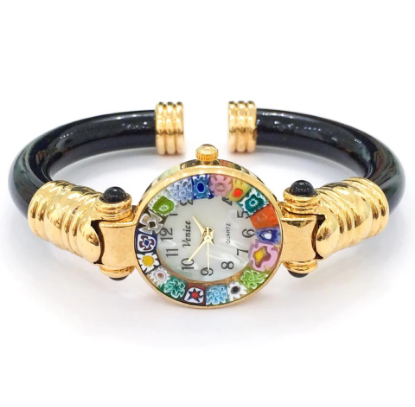Glassmaking is said to have started in Venice as early as 450 AD. Archeologists have found evidence of a glassmaking factory in the Venetian lagoon, possibly dating back to the seventh century AD. By the 13th century, Venice had become a successful trading port between the Middle East, Europe, and North Africa. Trade attracted nobles and wealthy merchants to the city, who became admirers and patrons of Venetian art.
MuranoNet is an online Murano glass shop with more than 2000 Murano glass products you can buy. All the products are authenticated by Vetro Artistico® Murano, ensuring they're made using Murano trade secrets. Explore our online shop to find your favorite Murano glass products.
Now, let's continue with our story.
When Murano Trade Secrets First Became Secret
Around 1271, a guild of glassmakers decided to make rules to help preserve the glassmaking techniques developed by artisans in Venice. They forbade artisans from divulging Murano trade secrets to any outsider. Glassmakers were prohibited from leaving Venice without approved permission from the guild. Rules were also made to give Venetian glass identifying signature qualities, such as the type of wood used.
Murano Trade Secrets Handed Down For Generations
By the 1400s, glassmakers had gained a heightened social status in Venice. Daughters and sons of glassmakers started marrying into nobility. In 1376, it was announced that the children of a glassmaker's daughter and a nobleman would be nobles as well.
Glassmakers would invent new techniques in addition to the Murano trade secrets protected by the guild, and they would hand their secrets down to their children. In the 1400s, an expert glassmaker named Angelo Barovier created a technique to make a type of marbled glass called Calcedonio. Angelo Barovier is considered the greatest Murano glassmaker to ever walk the earth. Calcedonio glass is also among the most celebrated forms of Venetian art today.

Behold The Awe-Inspiring Allure of Murano Glass
Giancarlo Angi opened MuranoVitrum, a Murano glass shop in Venice, in the 1950s. In 1997, MuranoVitrum launched the world's first online Murano glass shop named MuranoNet. Giancarlo Angi's passion for Murano art has been kept alive by his sons Giovanni and Franco Angi, who work in the MuranoVitrum showroom and run MuranoNet online shop.
MuranoNet has over 2000 Murano glass pieces you can buy online. You can buy everything online, from large glass vases with a wide mouth and large glass pendant lights to glass ceiling lights and Pacati drinking glasses.
Want to experience the Venetian glass made using Murano trade secrets yourself? Start browsing MuranoNet now!




Leave a comment
All comments are moderated before being published.
This site is protected by hCaptcha and the hCaptcha Privacy Policy and Terms of Service apply.